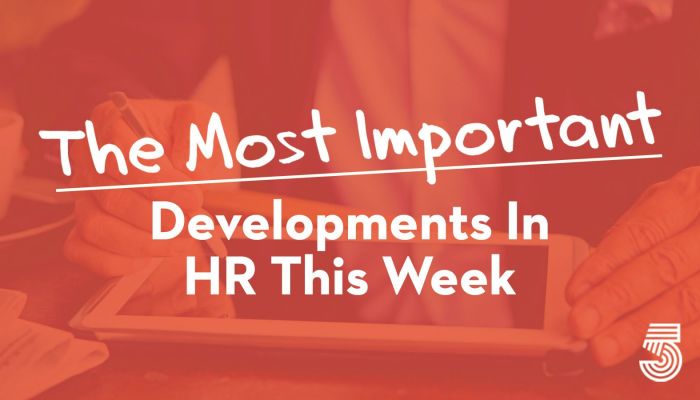The MID, as we call it, is curated by our editorial team from more than 50 news sources. Like a lot of good ideas, this started as something I wanted for myself. If I can’t read everything, I at least want to stay abreast of the most important developments.
This week in HR, companies required employees to be vaxxed or masked and rethought the return in the wake of Delta, Moderna was named Best Workplace for Innovators, Target announced free college to its workers, and we learned about the toxic workplace in Cuomo’s office.

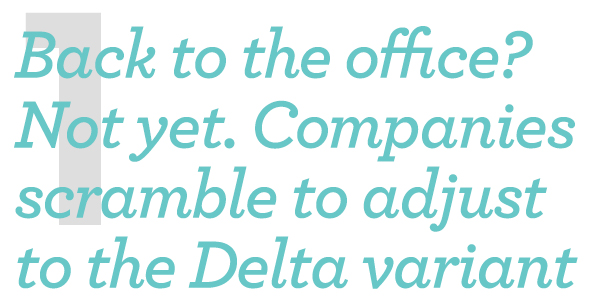
For a while there, it seemed like things were finally heading back to normal. Now, not so much. In the span of just a week, plans for a September return to the office have been pushed back. Mask mandates have made a comeback. On Friday, Walmart — the country’s largest private employer — reversed its policy and will once again require all workers to wear masks in areas most affected by the Delta variant of the coronavirus. Grocery chains Kroger and Publix are following suit. The New York Times indefinitely postponed its planned return to the office. The delta variant is much more transmissible, and health officials are concerned it may also make people sicker and can even be spread by fully vaccinated individuals. That means, almost a year and a half into the pandemic, companies are facing a difficult task of yet again recalibrating what steps are necessary to keep workers safe. NPR


Signs are increasing that more employers may mandate COVID-19 vaccination for their employees in the coming months. In the midst of less-than-stellar vaccination rates and the growing threat of the Delta variant — which is more transmissible and potentially more deadly than the original strand — President Joe Biden on Thursday announced federal employees will be required to prove their vaccination status or face stricter safety protocols. Meanwhile, Google and Facebook both announced Wednesday that they are requiring U.S. employees to be vaccinated to return to work. The moves are a significant signal that employer vaccine policies are changing as the Delta variant rapidly spreads and poses major risks for an end to the pandemic. HR Executive

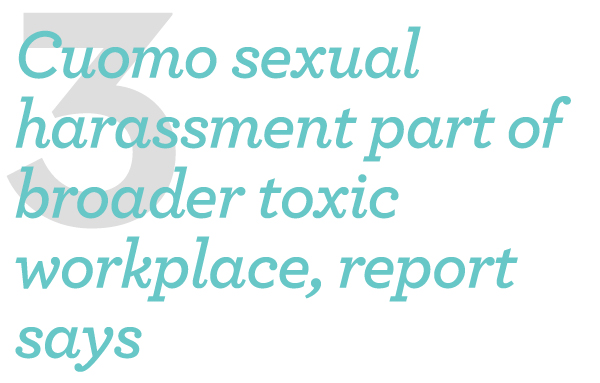
Doing a job at the behest of Gov. Andrew M. Cuomo was long known to be taxing and often demeaning work. But a 165-page report released on Tuesday by the state attorney general is at once the fullest accounting yet of his executive misdeeds and a meticulous rendering of how that conduct was permitted to fester in the first place. To exist as a woman in Mr. Cuomo’s orbit, the report suggested, was to live “the dichotomy between fear and flirtation,” a space where the boss could toggle between intimate and intimidating and where his senior-most aides seemed to operate with a singular focus on the governor’s reputation and personal comfort. The executive chamber declined to report harassment allegations from an executive assistant, Charlotte Bennett, to the appropriate state agency and moved instead to establish a practice preventing certain female staff members from being left alone with the governor. So bleak were the options available to Mr. Cuomo’s victims, witness interviews showed, that even unwelcome sexualized attention could be seen as “a better alternative to the otherwise tense, stressful and ‘toxic’ experience in the executive chamber.” The New York Times

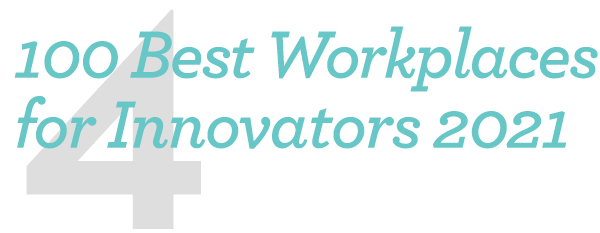
For the third year, Fast Company collaborated with Accenture to identify more than 100 organizations, leaders, and teams that have created cultures of innovation in 2021 — no easy task given that many employees have continued to work remotely this year. The companies on the Best Workplaces for Innovators found ways to collaborate and invent despite the challenges posed by the pandemic, and in some cases applied their innovation prowess to the challenges of virtual work. And when talent and innovation intersect with mission — as it did for vaccine maker Moderna, No. 1 on the Best Workplaces for Innovators ranking — the results are not just powerful, they can help change the world. Fast Company

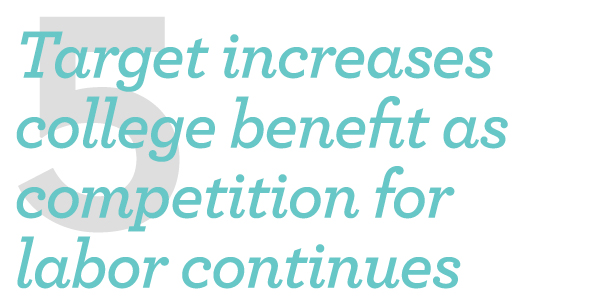
Target is the latest employer to increase higher education benefits as the tight labor market continues. The Minneapolis-based employer said Wednesday that it would offer its 340,000 front-line workers access to free bachelor’s and associate degree programs, including the cost of textbooks. The benefit applies to both part- and full-time workers in stores, distribution centers, and headquarters. Under the initiative, they will have access to 250 mostly online programs offered through 40 colleges and universities. Target plans to invest $200 million in the program over the next four years to help workers eliminate student debt and promote equitable access to education. Star Tribune







